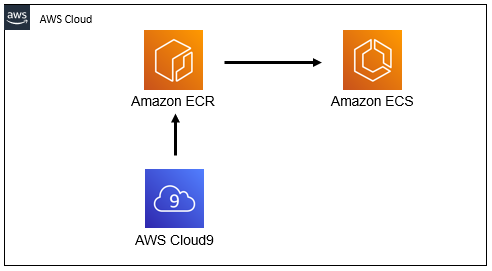
SSL (Secure Sockets Layer) is a cryptographic algorithm that allows web servers to encrypt the data they send over the internet. It also stops information from being intercepted and tampered in the middle or a connection by a unauthorized third party.
HTTP is a standard hypertext protocol used by websites to communicate with other servers and browsers on a network. It has been around since years and allows information to be communicated between a client and an end user. It does this by dividing the data packets into individual sections that are then transferred. The problem is that hackers can sniff data packets, and then read out information.
The SSL protocol enables the transmission of sensitive data between a web server and a browser, such as credit card numbers. It encrypts data so only the computer that is receiving it can decipher. This is used to protect your private information from being accessed by unauthorized parties.

To use the SSL protocol a webserver must create a public-key certificate. This certificate needs to be signed and verified by the certificate authority, so that your web browser knows it's reliable. A green padlock, or padlock icon is displayed in your browser's address bar to indicate that the server uses SSL.
There are various types of SSL certificates available to protect your website. Domain Validated (DV), Organization Validated(OV) and Extended Validation(EV) are the three main types. Although they may differ in their function, all of them require the same level of verification.
DV, the most basic certificate, requires that the website owner demonstrate their control over the domain. As it does not confirm the identity the owner of the website, this certificate is not suitable. It's also the least costly of the three choices.
Organization Validated Certificates are more advanced, and offer a higher degree of protection to businesses. Banks, credit card companies, and other entities who handle sensitive information usually require them. They also require a business to prove their identity through a series of verification procedures and are considered more secure than DV certificates.

They are available in a range of price points, and you can choose the one that is right for your business. They also offer a variety of other benefits, such as better search engine rankings and increased visitor confidence.
SSL Certificates are a great way to ensure your website is trustworthy and reliable. SSL Certificates are a good tool to show customers, both current and future, that you care for their security and respect their privacy.
There is a lot of data being collected by websites, so it is vital that they protect their users' private information. This is especially important if they ask for credit card or password details from their customers. This can mean the difference between a website making sales or not.
FAQ
Where can you find freelance web developers?
You can find freelance web designers and developers in several places. Here are some of our top choices:
Freelance websites
These websites offer job listings for freelancers. Some have very specific requirements, while others don't care what type of work you do.
Elance is a great place to find graphic designers, programmers and translators.
oDesk is similar, but they concentrate on software development. They offer jobs in PHP, Perl, Java, C++, Python, JavaScript, Ruby, iOS, Android, and.NET developers.
Another good option is oWOW. Their site is focused on web designers and graphic artists. They also offer video editing services such as writing, programming SEO and social media management.
Forums Online
Many forums let members advertise and post jobs. DeviantArt is a forum for web developers. You can search for "web developer" using the search bar to see a list threads in which people are seeking help with their websites.
What Types of Websites Should I Create?
This question is dependent on your goals. It may be best to sell online your products to build a company around your website. You'll need to build a robust eCommerce site to do this successfully.
Blogs, portfolios and forums are all popular websites. Each requires different skills. If you are looking to start a blog, then you need to know about blogging platforms like WordPress and Blogger.
You will need to decide how to customize your website's look when you select a platform. There are many templates and themes available that can be used for free on each platform.
Once you've selected a platform to build your website, you can start adding content. Pages can include images, videos, text and links.
You can publish your website online once you have launched it. Once published, visitors can view your site in their browsers.
What should I include in my Portfolio?
These things should make up your portfolio.
-
Example of your work.
-
If possible, links to your site
-
These are links to your blog.
-
These are links to social media sites.
-
Links to online portfolios of other designers.
-
Any awards you've received.
-
References.
-
Samples of your work.
-
Links showing how you communicate with clients.
-
You are willing to learn new technologies.
-
Links showing that you're flexible.
-
These links show your personality.
-
Videos showing your skills.
Which platform is best to create a website?
WordPress is the best platform when it comes to designing websites. It has all the features required to create a professional-looking website.
It is easy to customize and install themes. You can pick from thousands of free themes that are available online.
You can also install plugins to increase functionality. They allow you add buttons to social media and form fields, as well as contact pages.
WordPress is very user-friendly as well. You don’t need to know HTML code to edit your theme files. Simply click on an icon, and then select what you want.
There are many other platforms available, but I recommend using WordPress because it's been around for years and is still used by millions worldwide.
Statistics
- It's estimated that chatbots could reduce this by 30%. Gone are the days when chatbots were mere gimmicks – now, they're becoming ever more essential to customer-facing services. (websitebuilderexpert.com)
- Did you know videos can boost organic search traffic to your website by 157%? (wix.com)
- The average website user will read about 20% of the text on any given page, so it's crucial to entice them with an appropriate vibe. (websitebuilderexpert.com)
- At this point, it's important to note that just because a web trend is current, it doesn't mean it's necessarily right for you.48% of people cite design as the most important factor of a website, (websitebuilderexpert.com)
- When choosing your website color scheme, a general rule is to limit yourself to three shades: one primary color (60% of the mix), one secondary color (30%), and one accent color (10%). (wix.com)
External Links
How To
What is website hosting?
Website hosting is the place where visitors go to visit a website. There are two types.
-
Shared hosting – This is the most affordable option. Your website files reside on a server owned by someone else. Your customers' requests travel via the Internet to your server when they visit your site. The request is sent to the server's owner who then passes it on to you.
-
Dedicated hosting is the most expensive option. Your website is only accessible from one server. No other websites share space on the server, so your traffic stays private.
Shared hosting is preferred by most businesses because it's cheaper than dedicated hosting. The company hosting the server will provide the resources necessary to manage your website.
Both options have their pros and cons. Here are the main differences between them:
The pros of shared hosting:
-
Lower Cost
-
It's easy to set up
-
Frequent Updates
-
It can Be Found On Many Web Hosting Companies
Shared hosting can often cost as little as $10/month. Remember that shared hosting usually comes with bandwidth. Bandwidth refers the data that you can transfer over the Internet. Even if only you upload photos to your blog or website, high-volume data transfers may incur additional charges.
You'll soon discover why you paid so much more for your previous host when you get started. Most shared hosts have very poor customer support. Although they will help you set up your site occasionally, you are on your own once you have done that.
Look for a provider who offers 24/7 phone support. They will attend to any issues you have while you sleep.
Hosting dedicated:
-
More Expensive
-
Less Common
-
Specific Skills Required
With dedicated hosting, all you need to maintain your website are provided. You won’t need to worry whether you have enough bandwidth or enough RAM (random address memory).
This means you'll have to spend more upfront. But once your online business starts, you'll realize you don't need any technical assistance. You'll be able to manage your servers effectively.
So Which Is Better For My Business?
The answer to this question depends on which type of website you wish to create. Shared hosting is best for those who only need to sell products. It is simple to set up and easy to maintain. You'll probably receive frequent updates because you are sharing a server hosting many other sites.
However, dedicated web hosting is the best way to build a community around you brand. You can focus on building your brand without worrying about handling your traffic.
Bluehost.com is a web host that offers both. They offer unlimited monthly data transfers, 24/7 support, free domain name registration, and a 30-day money-back guarantee.